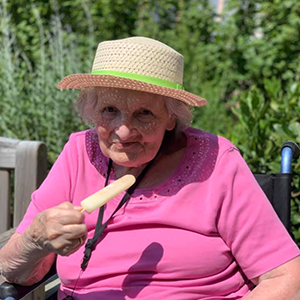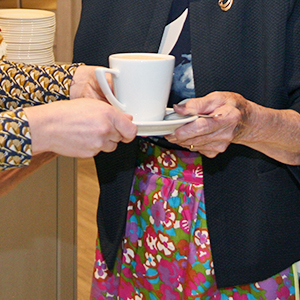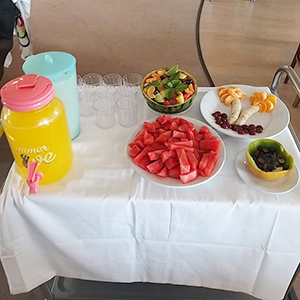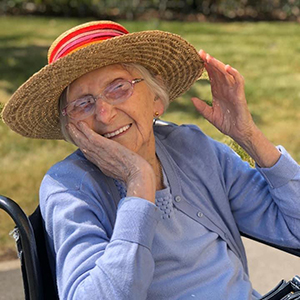We all love a warm sunny day, but it’s important to be prepared for very hot weather and know how to keep cool. Make sure to check on any elderly neighbours or older relatives, they’re at a higher risk than most.
As we age our bodies become more sensitive and cannot cope with changes in temperature in the same way as we once could. Older people suffering from mobility problems, such as Parkinson’s Disease are particularly at risk. Some types of medication reduce sweating, making it more difficult for our bodies to cool themselves down. Chronic illnesses, such as, heart and kidney disease can also put people more at risk in hot conditions.
Check on older people who are living alone, especially during the coronavirus lockdown they may be reluctant to open doors and windows to keep air flowing through their homes. Many people who have been shielding may be disinclined to go outside to cool down. Check how many layers of clothing they are wearing too; older people generally feel the cold and will often automatically overdress which puts them at risk of dehydrating.

If someone is showing signs of heat exhaustion including headaches, dizziness, nausea or vomiting, intense thirst, heaving sweating or a fast pulse try to cool them down. Find a cool place and loosen clothing, get them to drink plenty of water and sponge them with cool water or get them to have a cool shower. If symptoms don’t improve within 30 minutes, they should contact NHS 111 for advice.
When heat exhaustion is left untreated it can develop into heatstroke which is a life-threatening condition. Symptoms include confusion, disorientation, seizures and loss of consciousness, you should call 999 immediately.

There are many ways to stay cool during the warmer weather. Drinking plenty is an obvious, yet underrated way of staying cool. It’s important as it gives your body the fluid it needs to help you stay cool, whether you’re old or young 6 to 8 glasses of liquid a day are recommended. Fruit juices and ice lollies are great ways of staying hydrated if people are not so keen on water. Catering teams at care homes are well used to tempting people to stay hydrated with smoothies, fruit teas and plenty of fruit snacks.
Staying inside is a good idea, especially during the middle of the day between 11am and 3pm when the heats at its peak. Open the windows, draw the curtains and use a fan when you’re inside to help reduce the heat. If you do need to go out, make sure to wear a hat and sun cream to protect yourself. If you’re able to, it’s a good idea to wear light coloured and comfy clothes to help keep you cool and take cooler showers to help reduce your temperature.

It would be a shame not to make the most of the warmer weather while it’s here. Getting outside is a great way for residents in care homes to have some fun, most homes have a garden area that includes some shade. Carers are on hand to make sure people use sunscreen of at least SPF 30 applied generously every two hours. A hat to protect the face, head and ears is ideal, especially for those with thinner hair.
Saving outdoor activities later in the day is a great way to enjoy the outdoors, with the longer evenings there are plenty of opportunities to be outdoors and the weather is cooler and more enjoyable.

Overall, it can be very dangerous for anyone to get overheated, especially the more vulnerable. Make sure to keep yourself and others safe and hydrated.